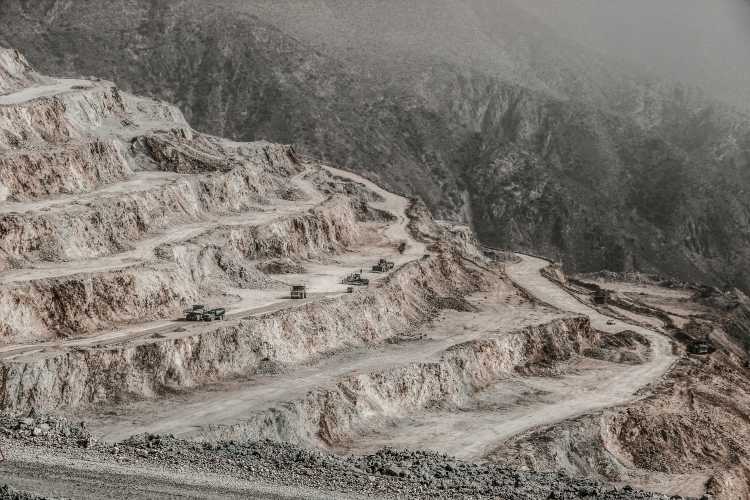
Critical minerals have emerged as indispensable resources for nations seeking economic prosperity and strategic independence amid technological advancements and the transition towards clean energy sources. Recognising the importance of these minerals, India has taken a decisive step forward by launching its first-ever auction of critical minerals, marking a stepping stone in the country’s journey towards self-reliance and economic growth.
The auction puts 20 blocks of critical and strategic minerals spread across the country on the block, signalling India’s commitment towards securing its domestic supply of these essential resources. Critical minerals, including lithium, graphite, cobalt, titanium, and rare earth elements (REE), are the backbone of modern technologies, driving the growth of industries ranging from renewable energy and defence to agriculture, pharmaceuticals, high-tech electronics, telecommunications, and transportation.
READ | Unstoppable: India’s mobile phone manufacturing sector riding the wave of success
The collective value of these blocks is estimated at ₹ 45,000 crore. The high demand for critical and strategic minerals is usually met by imports, and the import bill is ₹ 24,000 crore for lithium alone. The auction will be conducted online through a two-stage ascending forward process, with eligible bidders being selected based on the highest percentage of mineral dispatch value quoted by them.
Besides domestic firms, including battery manufacturers, international mining and other companies from South Korea and Japan have expressed interest in these blocks. The winning bidders will have to obtain up to 23 clearances, including environmental and state ones, for operating a mine.
India’s current reliance on imports for critical minerals poses significant challenges, exposing the country to supply chain disruptions, price volatility, and geopolitical tensions. The dominance of China in the global critical mineral market further accentuates India’s vulnerability, as it raises concerns about potential supply disruptions and price manipulations.
To address these concerns and strengthen its domestic supply chain resilience, the Indian government has embarked on a strategic initiative to auction critical mineral blocks. The transparent and competitive auction process, conducted online through a two-stage ascending forward auction mechanism, ensures fair and equitable access to these valuable resources.
The auction marks a significant milestone in India’s efforts to secure its critical mineral supply chain and enhance its strategic autonomy. By bolstering its domestic supply of these essential resources, India can safeguard its economic growth and technological advancements, reducing reliance on external sources and mitigating supply chain risks.
Apart from the auction, the Indian government has taken several proactive measures to promote the development of its critical mineral sector. These measures include:
- The government has rationalised royalty rates for critical minerals to encourage greater participation in auctions.
- It is investing in exploration and research activities to identify new reserves of critical minerals within the country.
- A dedicated mineral processing zone has been established to facilitate efficient and sustainable processing of critical minerals.
- The government is actively promoting collaboration with domestic and international partners to develop the critical mineral sector.
These initiatives, coupled with the auction of critical mineral blocks, underscore India’s unwavering commitment to securing its critical mineral supply chain and establishing itself as a global leader in the critical mineral sector. By securing access to these essential resources, India can pave the way for a future characterised by self-reliance, economic prosperity, and technological advancements.
Global market dynamics
Chinese companies control a significant share of the production and processing of critical minerals, particularly lithium. China has vast reserves of these minerals and efficient, low-cost production capabilities. Other major players in the global market are Australia, Chile, Argentina, and the United States. These countries possess significant reserves of various critical minerals and are actively engaged in exploration, mining, and processing activities.
India’s foray into critical minerals production marks a significant step in the country’s strategic positioning as a global player in this crucial sector. By securing access to these essential resources, India is looking to reduce its reliance on imports, bolster its domestic supply chain resilience, and establish itself as a reliable supplier of strategic minerals to the global market.
The auction has garnered attention from both domestic and international players. This underscores the growing recognition of India’s potential as a major player in the strategic minerals sector.
India’s move to auction critical mineral blocks is not merely an economic endeavour. It carries significant geopolitical implications. By securing its domestic supply of these essential resources, India can reduce its dependence on external sources, thereby mitigating supply chain risks and enhancing its strategic autonomy. Self-reliance will undoubtedly strengthen India’s position on the global stage, enabling it to play a more prominent role in shaping the future of the strategic minerals market.
